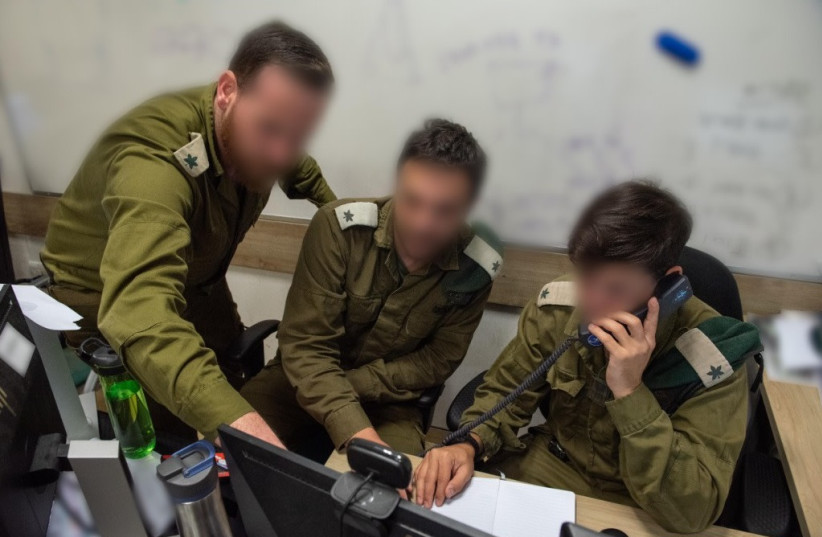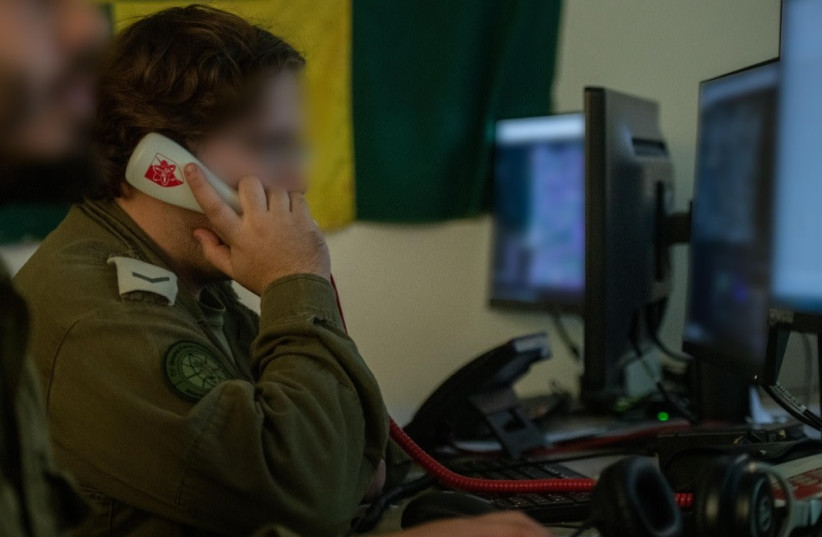by Yonah Jeremy Bob
Unit 504’s goals tend to be less big-picture strategic than the Mossad and the Shin Bet and pertain more to ongoing military operations.
 |
What is IDF Intelligence Unit 504, which on Monday disclosed its critical involvement in helping learn about Hamas’s abuse of Gazan hospitals, specifically, and in helping IDF ground forces be effective in Gaza, more broadly?
And what is the difference between its role and that of the Shin Bet (Israel Security Agency) and the Mossad?
First, the IDF was always the juggernaut historically, and all of its arms, including human spying, were large and had a tremendous impact on Israel’s ability to attack and defend.
After the 1973 Yom Kippur War disaster in which IDF Intelligence took the lead for the blame in failing to foresee that Egypt and Syria would launch a surprise attack on Israel, the government started to more significantly empower the much smaller Shin Bet and Mossad.
The idea was that more voices with more analytical and intelligence-gathering tools were needed so that even if one agency missed a large threat because of groupthink and being stuck in obsolete assumptions, one of the other agencies would think differently and catch the threat.


For decades – or at least until October 7 – this probably worked well, encouraging more debate and diverse views among Israeli intelligence agencies.
At one point, these changes meant that both the Mossad and the Shin Bet were heavily involved in Lebanon, even as Unit 504 had been deeply involved in Lebanon for a long time.
At a later point, however, the Mossad became more focused on Iran and international terrorism.
Likewise, at some point, the Shin Bet developed a greater expertise in Gaza.
Unit 504 back down south
What all of this meant was that at some point, Unit 504 took larger responsibility for Lebanon, while the Mossad, which always was supposed to have a more global focus, left Lebanon more to Unit 504.
As it became more focused on Lebanon, Unit 504 left more of the human spying work in Gaza to the Shin Bet, even if IDF Intelligence continued to use a variety of technological and aerial surveillance tools to gather intelligence.On Monday, Unit 504 announced that this change had been reversed.
As soon as the terrorist attack on October 7 hit, Unit 504 built a makeshift southern headquarters, doubled the size of its ranks, and reinvested deeply into Gaza.
Unit 504’s goals tend to be less big-picture strategic than the Mossad and the Shin Bet, and they pertain more to ongoing military operations.
This means that Unit 504 might question many arrested Palestinian terrorists or sympathetic Palestinian civilians with little to no preparation on the front lines in an effort to help troops on the same block advance the next few blocks, while avoiding ambushes and booby-traps.
In contrast, the Shin Bet is more likely to spend a longer period of time recruiting sources, and it is more likely to interrogate detainees at its secure facilities, to acquire bigger-picture strategic information.
The Shin Bet and Unit 504 do sometimes overlap in handling intelligence issues with some of the countries on Israel’s borders. But even as it has grown over the past 50 years, the Shin Bet is known for being able to specialize more for unusually complex missions, while Unit 504 is known to be able to bring a larger critical mass of operatives and human resources to address a threat or problem.
Meanwhile, the Mossad has also gotten much larger than it once was, and it runs agents, intelligence gathering, and operations across the globe, with a special focus on Iran.
Still, when a larger number of combat operations personnel are needed for a covert operation, Unit 504, along with some other IDF special forces units, is likely to at least supplement the Mossad, even sometimes beyond its standard envelope.
Another interesting move in the current war has been using Unit 504 to warn and help evacuate Palestinian civilians in Gaza. The unit performed very well in Syria during the 2010s to help convince anti-Assad-regime forces and other Syrian civilians to avoid friction with the Jewish state.
Will Unit 504’s reestablishment in Gaza lead to a larger postwar role, especially given that the Shin Bet and other IDF technological intelligence units missed Hamas’s invasion plans?
On the other hand, leaked intelligence to date has indicated that a minuscule number of Hamas leaders – only at the very top – knew the full scale of the terrorist group’s October 7 plans, so maybe Unit 504 would not have helped.
Still, the public will demand changes to the intelligence establishment once probing the war’s failures begins, and Unit 504, which was clearly not involved, may get another shot at being in the spotlight.
Yonah Jeremy Bob
Source: https://www.jpost.com/israel-news/defense-news/article-774260
No comments:
Post a Comment